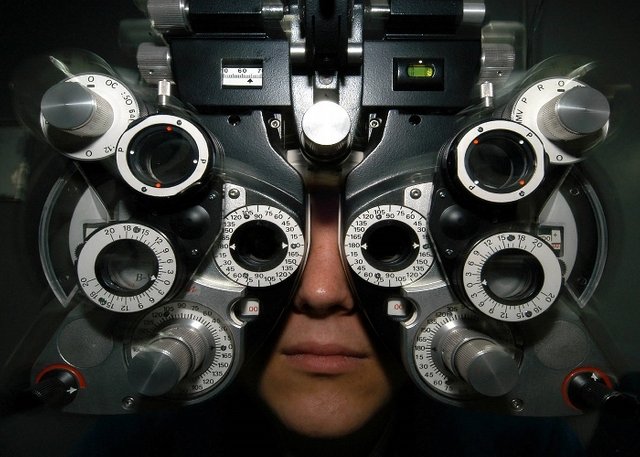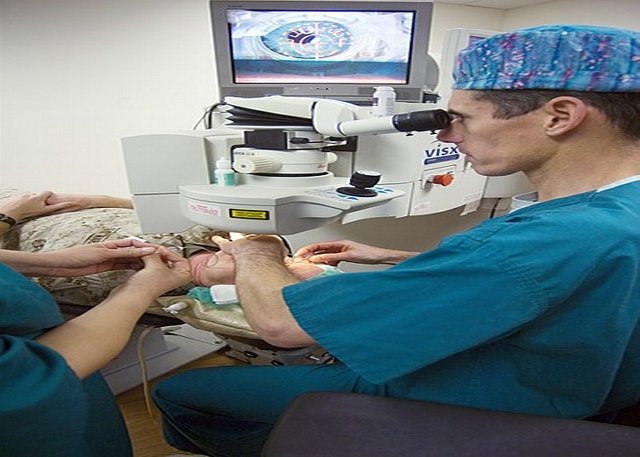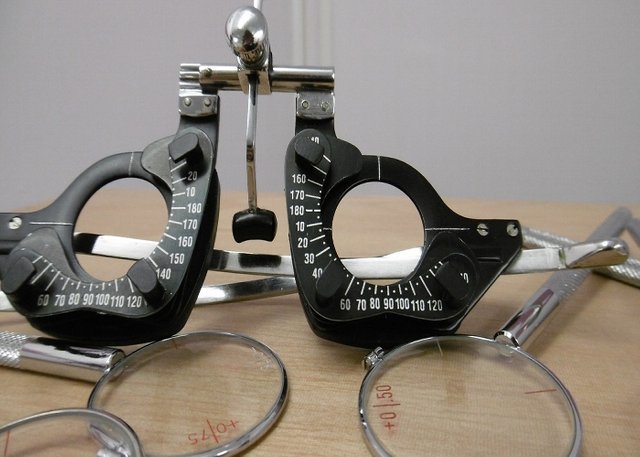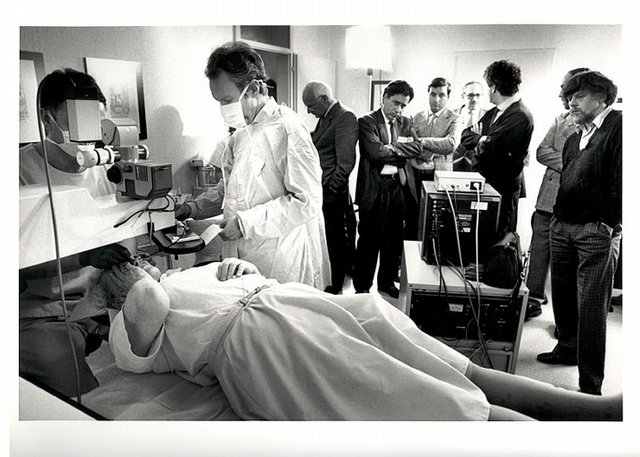The Truth About Laser Eye Surgery (LASIK & LASEK)
This article was motivated by the pitiable experience of a close relative of mine who was misled into undergoing a laser eye surgery with over 99% assurance that the procedure would mark an end to his very manageable eye defect. Unfortunately, the outcome fell far short of expectation as my uncle is, today, a comatose of his former self, and has almost gone blind following the procedure. While this article is not intended to discredit the effectiveness of this technological ingenuity in restoring normal visual acuity, it is meant to enable those those considering the procedure to make an informed decision as all that glitters are not gold.

[Source: Pixabay commons. CC0 licensed]

Eye, without any doubt, is the most cherished of all sense organs. Many people would prefer to live with an amputation or any other manageable health defect than without their natural sightedness. Losing total eyesight is so devastating that victims sometimes would prefer to take their lives than to live under blindness. Having good visual acuity or 20/20 vision means that the natural eye lenses are able to refract light rays to focus on the retina. However, if the eye lenses are not able to do this properly, it could mean the individual has an eye defect. The most common types of eye defects are myopia and hypermetropia in which the light rays brought to a focus in the front and behind retina wall respectively.
Usually, the first treatment option for those with sight defects is wearing eyeglasses or contact lenses for many years, and in some, cases for a lifetime. Wearing eyeglasses or contact lenses day in day out is no pleasant experience.
The discomforts associated with using eyeglasses and contact lenses are integral part of the shortcomings laser eye surgery procedures were developed to get rid of.
Imagine the feeling of being able to see clearly without those awkward optical extras that appear to be blocking your views. However, as children, we were told not to stare at the Sun in order not to harm our eye nerves and possibly going blind or suffering complications. With this in mind, how then will exposing our eyes to laser light improve our vision to the extent that we no longer need eyeglasses or contact lenses? Will laser eye surgery be able to fix all it promises? Is the procedure right for all persons based on viable research statistics? Let's find out in this article...

[Laser procedure being performed at US Navy base. Source: Wikimedia commons. Author: US Navy photo. public domain licensed]
What is laser eye surgery (LASIK/LASEK)
It is true that the most common cause of eye defects is the abnormal shape of eye lens and cornea in the case of astigmatism. Theoretically, we could surgically open the eyes, grab the lenses, and reshape them to correct the abnormality in their shapes. But this is too risky and very delicate because lenses are not easily accessible to a surgical surgeon. Protecting the lens is a thin, transparent coating known as cornea that has to be first removed before the lens can be accessed. However, cornea protective covering is curved, transparent, and contains no air, and so plays a part refraction of light rays. Hence, instead of cutting through the eyes to get at lenses which is very risky and delicate, surgeons prefers to work on the cornea coating to correct the eye defect. This is thus the theory behind laser eye surgery.
Having said that, by definition, we can say that:
Laser eye surgery is an umbrella term for several eye surgeries used to correct refractive errors (i.e., how your eye focuses light). The most common types of laser eye surgery include LASIK, and LASEK | Source
LASIK stands for Laser-Aassisted In-Situ Keratomileusis whereas LASEK stands for Laser-Assisted Subepithelial Keratectomy. Medically, kerato is the prefix that is associated with anything that has to do with cornea. From this, we could have so many other medical names. Examples; Keratitis is a medical term used to describe the inflammation of the cornea; Keratectomy is a term used to refer to surgical procedure in which a part of cornea is surgically removed, and Keratomileusis is used when the surgical procedure involves reshaping of the cornea surface as against excising a part of it. With this in mind, it is now obvious where LASIK and LASEK were originally derived from, and we can now differentiate between the two surgical procedures: (LASIK = reshaping cornea; LASEK = removing a part of cornea). What's true for both of these procedures is the fact that they can both be used to correct myopia, hypermetropia, astigmatism and presbyopia. Let's take a closer look, at this point, to each of these procedures...

[Source: Pixabay commons. CC0 licensed]
LASIK
This is the most common of all, and very simple to understand. The procedure is not painful neither is it comfortable. Here, anesthetic is first used to treat the eye preparatory to the procedure. Then suction frame is used to grip the eyelids as well as pull on the cornea, holding it in position in readiness for the surgery. Within a split of nanoseconds, either laser light or microscopic knife known as microkeratome blade, is used to cut a flap in cornea. With a tiny portion of the flap acting as a hinge, the flap is lifted up and folded back in a way that exposes the corneal tissue underneath, which is then reshaped with the aid of a laser beam under computer control. When through, the flap is placed back and is able to self heal without being aided by stitches or surgical adhesives.
It is wrong to expect an overnight improvement as recovery will occur in phases under the close guidance of your doctor. Click here for a more thorough explanations and precautions following the procedure.
LASEK
LASEK is a less painful or invasive version of an earlier type of laser procedure known as photorefractive keratectomy (PRK). Both procedures are similar in that they interact with epithelial cells of the cornea. However, in PRK procedure, epithelium is entirely removed and discarded whereas LASEK procedure only brushes away the epithelium in order to carry out the surgery and after then places it back for reattachment and healing [ref].
In comparison to LASIK, LASEK is a far less drastic procedure. It is technically referred to as a surface ablation procedure, a process that entails removing some of the epithelial cells of the cornea. Generally, it is thought of as being safer and less susceptible to complications than LASIK. However, there is still an uncertainty over which is a better treatment option. A 2017 Cochrane review of numerous published studies concludes that:
"there is uncertainty in how LASEK compares with LASIK in achieving better refractive and visual results in mildly to moderately myopic participants."
You can go here to read further on LASEK.

[The first laser vision surgery. Source: Wikimedia commons. Author: Lspeyeclinic. CC BY-SA 3.0 licensed]
Knowing the truth and making an informed decision if the procedure is right or not right for you
More often than not, it is not uncommon to see many newspapers, magazines and internet advertisements paint an attractive picture of the procedure to lure unsuspecting victims of eye defects to undergo the procedure in their choice organizations and make profits off such individuals. They make it look as though the procedure is the elusive magic wand to the victim's eye defects. And most people end up thinking the procedure is as simple as work in and work out with 20/20 vision kind of process. This is by no means the true representation. The truth is, first; laser eye surgery does not guarantee perfect vision, and again, it is not suitable for all persons. That's first. Secondly, it's not as simple as advertisers may want us to believe. All things being equal, a potential candidate has to be put through a long period of preparation before the actual surgery, and recovering after the procedure could take between one month through six months to up to one year.
FDA reports that the safety and effectiveness of laser eye procedure is yet to be determined in persons with some diseases [ref]. This is why it is not for all persons. It is important that prospective individuals undergo a thorough pre-screening procedures to determine where they fall into in order not to complicate their conditions afterwards.
According to the October 2014 publication of the results of FDA's LASIK Quality of Life Study, the below observations are noteworthy...
Based on our initial analyses of our studies:
Up to 46 percent of participants, who had no visual symptoms before surgery, reported at least one visual symptom at three months after surgery.
Participants who developed new visual symptoms after surgery, most often developed halos. Up to 40 percent of participants with no halos before LASIK had halos three months following surgery.
Up to 28 percent of participants with no symptoms of dry eyes before LASIK, reported dry eye symptoms at three months after their surgery.
Less than 1 percent of study participants experienced "a lot of" difficulty with or inability to do usual activities without corrective lenses because of their visual symptoms (halos, glare, et al.) after LASIK surgery.
Participants who were not satisfied with the LASIK surgery reported all types of visual symptoms the questionnaire measured (double vision/ghosting, starbursts, glare, and halos).| Source
FDA would later go on to publish an article to highlight the risks as well as a list of factors and conditions for prospective individuals to consider before choosing a doctor for their surgery [ref]. It is very advisable to review the list before making conclusions.

[Source: Pixabay commons. CC0 licensed]
Conclusions
Despite the 95.4% patient satisfaction rate report of a 10-year period data about 3000 peer-reviewed articles from international clinical journals which was published by the American Society of Cataract and Refractive surgery, the key messages of this article should not be ignored.
Summarily put, these key messages are as outlined below:
It is important to appreciate the fact that this is a serious surgical process and should not be taken lightly. It is not as simple as deciding to switch from glasses to contact lenses.
Ensure you get properly informed on the implications of the procedure, including the possible recovery duration. Don't be caught by the sweet language of the advertisers who are simply doing the bidding of optical clinics. Research and read widely to get trustworthy information from reputable sources.
Consider different likely scenarios after the procedure, and have realistic expectations about the outcome. For example; you may not have a perfect vision afterwards, you may have to undergo the process twice in the event of negative outcome, you may even still need to wear glasses. This is to prepare yourself beforehand so that if the outcome falls short of your expectations, you will not entertain suicidal thoughts, go into depression, psychological disorder or hurt yourself in any way.
If you, however, decide to go ahead with the surgery, do a thorough investigation on the surgeon. Find out about his credentials and reputation. Please don't go for the cheapest, as your eyesight is not something you would like to sacrifice on the altar of cheapness. Get recommendations from a good number of surgeons.
Goodluck to you.
References for further reading
- Study on post-LASIK quality of life
- what are the risks and how can I find the right doctor?
- LASIK quality of life collaboration project
- when is LASIK not for me
- LASEK eye surgery: how it works
- Laser eye surgery
- LASIK
- Photorefractive keratectomy
- Myopia, hyperopia, astigmatism, presbyopia
- what's laser eye surgery?
- LASIK procedure: a complete guide
Yours truly,
@eurogee
Do You Blog About Science, Technology, Engineering, and Mathematics? If Yes, Patiently Read The Below Info


Join Euronation Community on Telegram and whatsapp through the below links to socialize with larger steemit community:

No Witnesses = No Steem Blockchain; If You Truly Love Here, Vote For Witnesses NOW!
Click This Link To Vote Now


Your article gives great food for thought. I am a licensed optician and I have to tell you that I’ve seen folks who are extremely pleased and some that ended up worse off than prior to the procedure. Whether you choose to have this done, continue to wear contacts, or do anything without eye protection, consider this- you get one set of eyes in your lifetime. Be sure you are ALWAYS treating them right. You can’t get back what you lose-usually, so please take care in any decisions you make and how you choose to take care of your eyes. Sight is a precious gift.
I appreciate this valuable feedback. And do totally agree with you. Thanks you
Great article on Lasik. I've always heard rave reviews about this procedure and never thought it had such detriments. If my eye sight ever degenerates I think I will be better off wearing glasses than tampering with those lasers. Thank you for sharing :)
Not that bad a procedure but trade carefully. Thanks
I've learnt couple of things here thanks to @eurogee.
I am @teekingtv and I write STEM
Appreciate your visit
Anytime sir.
You talked about 95.4% patient satisfaction, does it mean the procedure achieved the desired result almost 95 times out of 100? If this is the case, I would say it's still a significant success especially if the eye issue is a chronic one.
Even though I would have loved to see more statistical information concerning the procedure, you did a good job with the write-up. Well done.
Hello @gentleshaid
Yes it is a significant record I must confess but at the same time questionable when you consider this FDA observation:
But then the essence of this article is for people to ensure that they are adequately pre-screened to determine if they are suitable for the procedure. For instance, it can be very risky for a diabetic (who is liable to delay healing) to undergo the procedure.
Thanks for reading.
@eurogee
Well, the eyes is definitely the most delicate part of the human body. I really wonder why we have to subject ourselves to such risks in the name of making perfect what could be managed.
The waves associated with lights used for medical therapies of such high level are often treated to become mild. But even at that, the eyes is too delicate to be subjected to them.
Anyways, the fact that the procedure has recorded about 95% success is one reason why there's no going back. The number is pretty commendable.
Interesting read @eurogee
Yes. Thanks for being here
This procedure is carried out by professionals who I believe will tell the patient the attendant risk and follow due process. I don't think there is surgery where someone is guaranteed a 100% chance of success. There is no ideal situation, but I still think laser surgery is safer than most other surgical methods.
I think I can take a 1 in 30,000 or 99.9966% chance of success.
Good article :)
That's for such an objective view sir.
Not all of them do this these days. People seem to be interested in money than they are in other people well being. The story of my relative is a case study. I myself have been sick before to such a extent that I had to travel to India to seek a more advanced treatment. I know my experience. And I can tell it's not all that palatable.
Appreciate your visit.
Regards
Thanks for sharing some useful info about LASIK and LASER treatment.
Your posts are always informative and I always appreciate your time in writing such detailed blogs.
Thank you for using eSteem and you have been chosen by eSteem curators for Encouragement Program .
I visited the blog page but could not figure out what you meant. Can you explain more please.?
As you can see in the Encouragement Program page, it's a set of rules set by @good-karma and team to evaluate the posts posted thru eSteem mobile or Surfer desktop apps and encourage the authors by rewarding their posts.
Recently we had a discussion with @good-karma and decided to use that message to appreciate authors and invite authors to visit that blog to understand the rules.
Couldn't see encouragement page. All I saw was @good-karma. Thanks for your reply anyways.
yes true that human can survive without any organ i.e arms,legs but can't leave without eye . without eye he or she does not imagine how world is and how his or her family is ..
Thanks
Wow! Sometimes I try to imagine the mind of the surgeons. They should be appreciated. Thinking about using a microscopic knife to operate on another humans eyes gives me a funny feeling. I hail surgeons
Hmm. That's something I never knew. I always thought that the flap must be stitched back.
Thanks for this nice write up. It's really amazing!!
Well, in as much as we hail football players, sure surgeons deserve some Kudos too but THAT IS WHEN THEY DO A GOOD JOB.
Nigerian medical practitioners suck big time. Sometimes you visit a hospital with headache problem and come hack having that deadly HIV. Seriously, it ain't funny. The day Nigeria Super Eagles played Croatia, I was in complete village, Ikeja to get some gadgets and came across this woman who just arrived from UK. Situation made us share some life experiences and that was how she talked about her mother that lost her life recently. The deceased was said to be having cancer but luckily, she was treated in UK with organic means and was fortunate to survive it. She came back to Nigeria and visited a hospital with toothache complaint but end up dead. On top wetin!? Toothache! 😢
So while I admire the good surgeons who are professionals, I can beat the hell outta the idiotic ones. There was a situation where a Nigerian surgeon forgot a needle inside a woman's belly after surgery. RIP to the innocent woman 😢.
So, I am already furious as it is. Do not get me more angry.
I am @teekingtv and I write STEM.
I totally agree with you 100%!
I have finally made it in life! 😂
I agree with you on the basis of @teekingtv's opinion. Not in all cases but only when they do a nice job! Thanks for visiting.
@eurogee
Congratulations! Your post has been selected as a daily Steemit truffle! It is listed on rank 3 of all contributions awarded today. You can find the TOP DAILY TRUFFLE PICKS HERE.
I upvoted your contribution because to my mind your post is at least 21 SBD worth and should receive 147 votes. It's now up to the lovely Steemit community to make this come true.
I am
TrufflePig, an Artificial Intelligence Bot that helps minnows and content curators using Machine Learning. If you are curious how I select content, you can find an explanation here!Have a nice day and sincerely yours,

TrufflePig